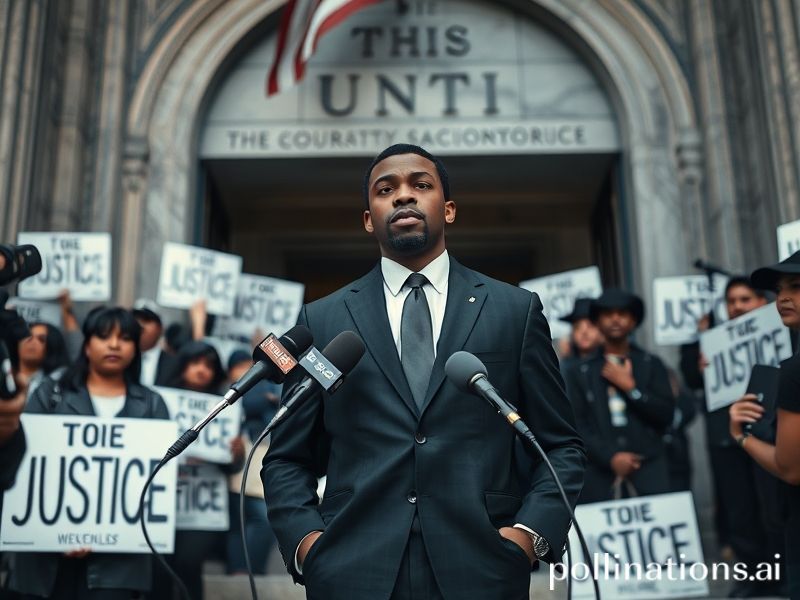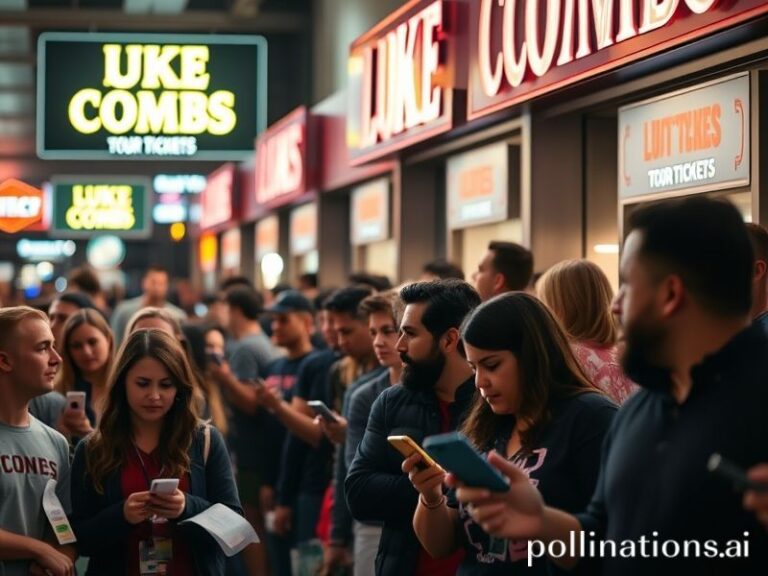Tony Earls Jr. Acquittal: How One Georgia Parking-Lot Shooting Became the World’s Newest Cautionary Tourism Ad
The Tony Earls Jr. case—an Atlanta shooting that turned a parking-lot spat into a referendum on American gun etiquette—has now been filed in the global folder marked “Yet Another U.S. Tragedy the Rest of Us Watch Like a Slow-Motion Netflix Series.” For readers outside the Lower-48 who might have missed the subtitles: Earls, a 24-year-old Georgia man, fired at a fleeing car thief, missed, and fatally struck a 7-year-old girl. A jury acquitted him of felony murder, accepting the defense that he was “trying to protect his wife.” Cue the predictable domestic uproar. Yet from Berlin to Bogotá, the verdict landed with the same weary shrug reserved for American weather reports: “Hot today, chance of stray bullets.”
Europeans, who long ago replaced frontier justice with espresso and public healthcare, are baffled. French talk shows opened with the usual rhetorical shrug: “So, let us understand: the best way to protect your wife is to shoot up a parking deck in the general direction of a Civic?” In Germany, where gun licensing rivals tax audits for thoroughness, newspapers ran sidebars on “active shooter insurance,” a product now marketed to U.S. tourists like malaria pills. Meanwhile, Japanese commentators—whose national homicide statistics can fit in a haiku—used the case as a cautionary tale for inbound students: “America, beautiful, but do not argue over parking.”
The wider significance, however, isn’t that Americans keep shooting one another; it’s that they keep exporting the spectacle. Every live-tweeted verdict, every ring-cam footage clip, becomes shareable content in the global doomscrolling economy. The Earls case trended from Lagos to Lahore not because Nigerians or Pakistanis suddenly care about Georgia parking etiquette, but because the feed demands fresh outrage. We’re all rubberneckers now, rubbernecking in different currencies.
International law firms took notes. In London, barristers specializing in extradition quietly updated their slide decks: “If a U.S. client claims self-defense after collateral damage, remember Georgia precedent—juries may sympathize with the shooter who ‘feels threatened.’” The Gulf States, ever pragmatic, saw a business opportunity: marketing Dubai as “the safe place to park your Bentley.” One ad agency floated the slogan: “No carjackings, no stray rounds, just valet.” Tasteless? Absolutely. Effective? Check the tourism metrics next quarter.
Human-rights NGOs issued the usual sorrowful press releases, but even they sounded autopiloted, like wedding DJs playing “Y.M.C.A.” Amnesty International’s regional director for the Americas called the verdict “a chilling reminder of systemic gun violence,” which is NGO-speak for “We’ve copy-pasted this since Columbine.” Meanwhile, the International Red Cross quietly updated its “urban warfare” guidelines to include American strip malls—because if shoppers in DeKalb County can catch a ricochet, so can aid workers in Mosul.
The darkest irony? Earls’ acquittal may inadvertently bolster America’s gun-export brand. Every time a U.S. shooter walks, foreign consumers of the Second Amendment mythos—hobbyists in the Philippines, militia cosplayers in South Africa—receive another marketing nugget: “See, it works; you too can stand your ground, consequences negotiable.” Smith & Wesson’s quarterly report doesn’t quantify the Earls bump, but shareholders aren’t complaining.
And so the carousel spins. Somewhere tonight a commuter in São Paulo will scroll past the headline, mutter “loco,” and board a bus where the only metal detected is coins. A Seoul office worker will tap “angry” on Facebook, then queue obediently at the PC bang. We watch, we judge, we change nothing—except perhaps our travel plans. The U.S. State Department still lists “exercise caution due to crime” for half the world; meanwhile, half the world lists the United States under “exercise caution due to self-defense.”
Conclusion? The Tony Earls Jr. case isn’t just a Georgia story; it’s a global parable about what happens when fear and firepower share the same glove compartment. The rest of us can’t vote in U.S. elections, but we can vote with our feet—and our vacation budgets. Until America figures out how to de-escalate a parking dispute without turning it into a funeral, expect the international audience to keep tuning in for the same reason we watch Formula 1: for the crashes, not the finish line.







